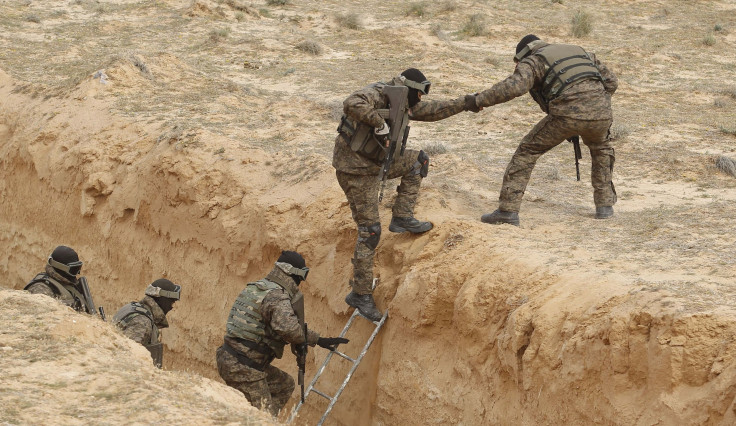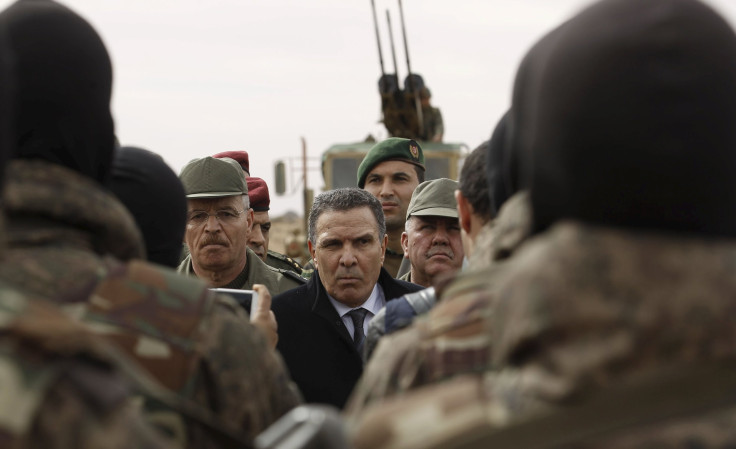Anti-ISIS Wall: Tunisia Builds Barrier On Libyan Border To Keep Out Extremists

BEIRUT-- Libya's disintegration into civil war following the 2011 uprising has had its neighbors worried about a domino of violence. Tunisia, which borders Libya on the northeast, has decided to minimize the growing threat of cross-border raids and terrorist infiltration by dealing with it in the same way suburb dwellers around the world deal with nosy neighbors: They built a barrier.
Tunisia completed construction of a roughly 125-mile barrier, which runs along its border with Libya. Tunisian Defense Minister Farhat Hachani described the barrier as a “system of obstacles,” that includes a trench built to keep out militants from Libya. U.S. and German military and technical experts are expected to arrive in Tunisia soon to install an electronic monitoring system, according to the North African Post.
The barrier will show that “Tunisia is capable of fighting against terrorism in an active and efficient way,” the minister said, adding that the barrier had already “proven its efficiency. On several occasions we have stopped and arrested people who were trying to smuggle weapons.”

Tunisia, the only country to emerge from the Arab Spring with a burgeoning democracy, has become vulnerable to threats posed by extremist organizations and increasingly entwined in Libya’s chaotic civil war, which has left a power vacuum that the Islamic State group, or ISIS, and al Qaeda have been only too eager to fill.
The country has the highest number of foreign fighters to have joined extremist groups in Iraq and Syria, which has now reached at least 6,000, according to a December report from the Soufan Group, including at least 700 women. So far, more than 625 Tunisians have returned from fighting in Iraq and Syria.
“For fragile states like Tunisia, returning fighters pose a particular threat to stability — a threat the government is struggling to contain,” the report said.
© Copyright IBTimes 2025. All rights reserved.





















